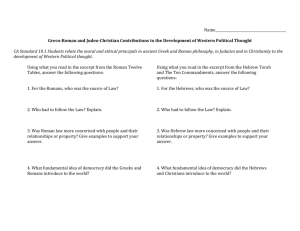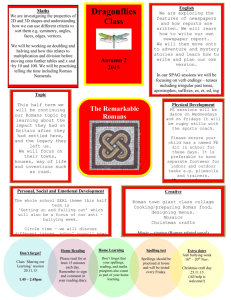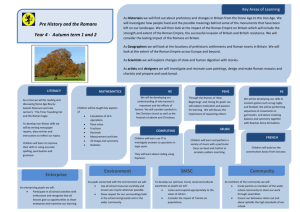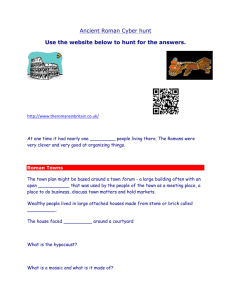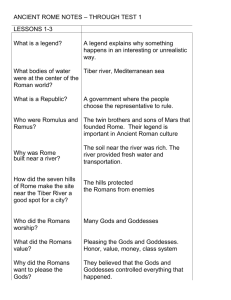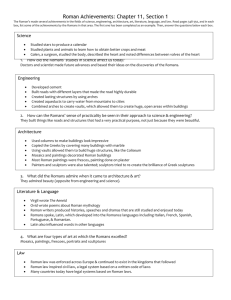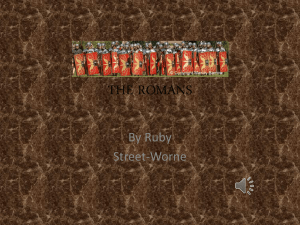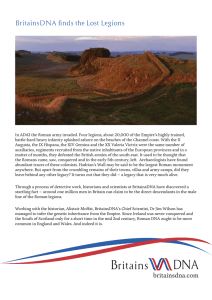THE ROMANS
advertisement
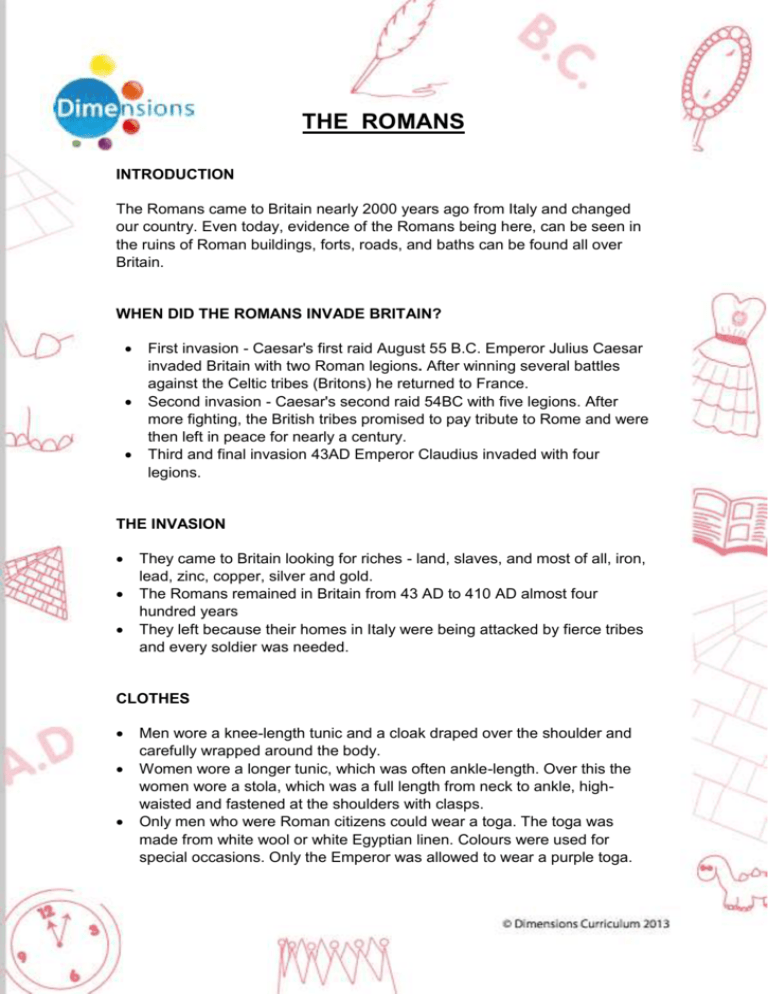
THE ROMANS INTRODUCTION The Romans came to Britain nearly 2000 years ago from Italy and changed our country. Even today, evidence of the Romans being here, can be seen in the ruins of Roman buildings, forts, roads, and baths can be found all over Britain. WHEN DID THE ROMANS INVADE BRITAIN? First invasion - Caesar's first raid August 55 B.C. Emperor Julius Caesar invaded Britain with two Roman legions. After winning several battles against the Celtic tribes (Britons) he returned to France. Second invasion - Caesar's second raid 54BC with five legions. After more fighting, the British tribes promised to pay tribute to Rome and were then left in peace for nearly a century. Third and final invasion 43AD Emperor Claudius invaded with four legions. THE INVASION They came to Britain looking for riches - land, slaves, and most of all, iron, lead, zinc, copper, silver and gold. The Romans remained in Britain from 43 AD to 410 AD almost four hundred years They left because their homes in Italy were being attacked by fierce tribes and every soldier was needed. CLOTHES Men wore a knee-length tunic and a cloak draped over the shoulder and carefully wrapped around the body. Women wore a longer tunic, which was often ankle-length. Over this the women wore a stola, which was a full length from neck to ankle, highwaisted and fastened at the shoulders with clasps. Only men who were Roman citizens could wear a toga. The toga was made from white wool or white Egyptian linen. Colours were used for special occasions. Only the Emperor was allowed to wear a purple toga. OTHER ROMAN FACTS Houses – Rich Romans lived in villas and everyone else lived in huts. The Army - The Roman army was made up of groups of soldiers called legions. There were over 5,000 soldiers in a legion. Each legion had its own number, name, badge and fortress. Gods - Religion was an important part of Roman daily life. The Romans believed in many different gods and goddesses. Hadrian’s Wall - Hadrian's Wall was a stone barrier built to separate the Romans and the Picts tribes in Scotland. It allowed Roman soldiers to control the movements of people coming into or leaving Roman Britain. It was 73 miles long across the narrow neck of England, from the North Sea to the Irish Sea. The Romans built Britain's first towns. Within 17 years of the invasion, they had several major towns in place connected by the famous Roman Roads. Streets were laid out in neat, straight lines, like on a chessboard. In the middle there was a large square, called the forum. It was used as a market place and for meetings. FAMOUS ROMANS Julius Caesar was born on July 13 100 B.C. He was a great soldier and general. He helped to take over new land for the Roman Empire. Augustus was the nephew of Caesar and the first Emperor of Rome. He was not always called Augustus, he was born Octavian. He changed his name to Augustus in 27 BC when he won the civil war that followed the death of Julius Caesar, and became emperor. Claudius was the emperor who conquered Britain. His wife murdered him. THE ROMANS LEGACY The Census -The Roman Empire was huge and they kept track of all the people by counting them. Straight roads /central heating/concrete/aqueducts Language - The language we use today was developed from the Romans. The Romans spoke and wrote in Latin and many of our words are based on Latin words Roman Numerals - Roman Numerals do not have a zero (0) and have 7 digits (I, V, X, L, C, M) The Calendar -It was started by Julius Caesar based on the movement of the earth around the sun

